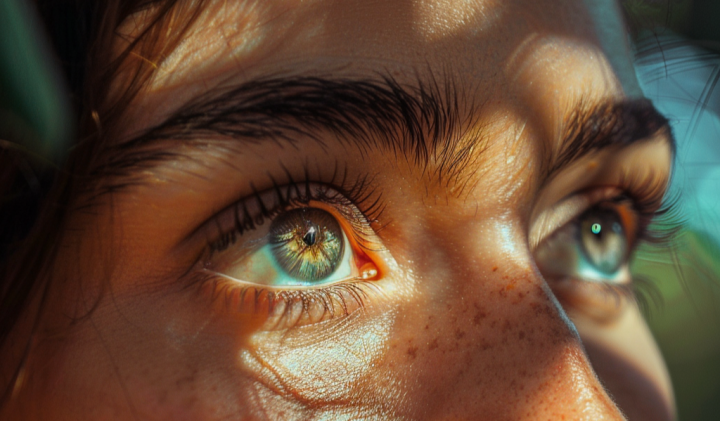Understanding Macular Degeneration
Macular degeneration affects the macula, the central part of the retina responsible for sharp, detailed vision. There are two main types of age-related macular degeneration:
- Dry AMD (Atrophic): The most common form, characterized by the thinning of the macula and the accumulation of drusen (yellow deposits). It progresses slowly and can lead to gradual vision loss.
- Wet AMD (Neovascular or Exudative): Less common but more severe, involving the growth of abnormal blood vessels under the retina, which can leak fluid or blood, leading to rapid vision loss.
Causes and Risk Factors
- Age: The risk of AMD increases with age, particularly after the age of 50.
- Genetics: A family history of AMD can increase the likelihood of developing the condition.
- Smoking: Smokers are at a significantly higher risk of developing AMD.
- Obesity: Excess weight can increase the risk and progression of AMD.
- Diet: Poor diet lacking in essential nutrients can contribute to AMD.
- High Blood Pressure and Cardiovascular Disease: These conditions are associated with a higher risk of AMD.
- Sunlight Exposure: Prolonged exposure to ultraviolet light without protection can increase the risk of AMD.
Symptoms of Macular Degeneration
- Blurred or Distorted Vision: Straight lines may appear wavy or distorted.
- Dark or Empty Areas in Central Vision: A central blind spot may develop.
- Difficulty with Fine Details: Reading, driving, and recognizing faces become challenging.
- Changes in Color Perception: Colors may appear less bright or vivid.
Diagnosis of Macular Degeneration
- Comprehensive Eye Exam: Includes a visual acuity test, dilated eye exam, and tonometry to measure eye pressure.
- Amsler Grid Test: A simple test to detect vision changes related to AMD.
- Optical Coherence Tomography (OCT): A non-invasive imaging test that provides detailed images of the retina.
- Fluorescein Angiography: A test that involves injecting a dye into the bloodstream to highlight blood vessels in the eye.
- Fundus Photography: Taking detailed pictures of the retina to monitor changes.
Treatment Options for Macular Degeneration
Dry AMD:
- Nutritional Supplements: High doses of vitamins and minerals (AREDS2 formula) can slow the progression of dry AMD.
- Healthy Diet: Consuming a diet rich in leafy green vegetables, fruits, nuts, and fish can support eye health.
- Regular Monitoring: Regular eye exams to monitor the condition and catch any progression early.
Wet AMD:
- Anti-VEGF Injections: Medications like ranibizumab (Lucentis), aflibercept (Eylea), and bevacizumab (Avastin) are injected into the eye to reduce abnormal blood vessel growth.
- Photodynamic Therapy: A treatment that uses a light-sensitive drug and a laser to destroy abnormal blood vessels.
- Laser Surgery: A laser is used to seal leaking blood vessels.
Managing Macular Degeneration
- Regular Eye Exams: Schedule regular visits with an eye care professional to monitor changes and adjust treatment as needed.
- Healthy Lifestyle: Maintain a healthy diet, exercise regularly, and avoid smoking to reduce the risk of progression.
- Vision Aids: Use magnifying devices, special lenses, and other aids to help with daily activities.
- Protective Eyewear: Wear sunglasses with UV protection to shield your eyes from harmful sunlight.
- Support Groups: Connect with others who have AMD for emotional support and practical advice.
Preventive Measures
- Healthy Diet: Eat a diet rich in fruits, vegetables, and omega-3 fatty acids to support eye health.
- Avoid Smoking: Quitting smoking can significantly reduce the risk of developing AMD.
- Regular Exercise: Physical activity can improve overall health and reduce the risk of AMD.
- Eye Protection: Wear sunglasses with UV protection when outdoors.
- Regular Eye Checkups: Early detection and treatment can slow the progression of AMD.
Conclusion
Macular degeneration is a serious eye condition that can impact quality of life, but with proper understanding, regular monitoring, and appropriate treatment, its progression can be managed. Adopting a healthy lifestyle, protecting your eyes, and staying informed about the latest treatments can help maintain your vision and improve your overall well-being. If you or a loved one is affected by AMD, work closely with an eye care professional to develop a comprehensive management plan.
